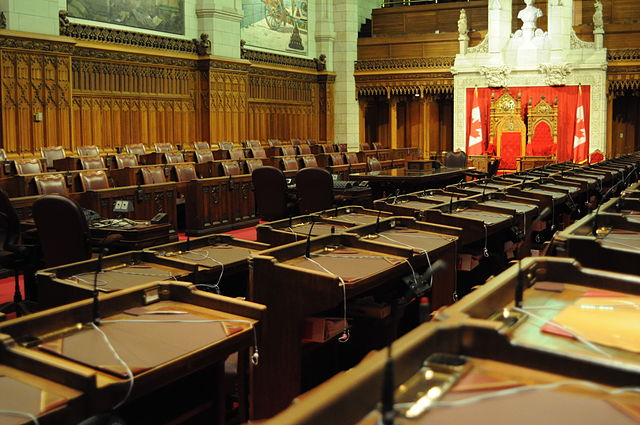Canada News
Senate on road to another showdown with government over impaired driving bill

The government has previously served notice that it will reject the Senate’s amended version of the bill and will insist that the roadside testing measure be reinstated. (Photo: Andrijko Z. – Own work, CC BY-SA 3.0)
OTTAWA – The Senate has set itself on the road to another potential showdown with the government, passing a gutted version of a bill to tighten impaired driving laws.
The upper house approved Bill C-46 on Thursday – minus its centrepiece measure to allow police to conduct random roadside alcohol breath tests.
The government has previously served notice that it will reject the Senate’s amended version of the bill and will insist that the roadside testing measure be reinstated.
The two houses of Parliament were already at odds over the government’s bill to legalize recreational cannabis, with senators approving Bill C-45 with almost four dozen amendments.
The government on Wednesday rejected 13 of those amendments, including one which would have recognized the provinces’ authority to ban home cultivation of marijuana plants if they so choose.
On both bills, senators will have decide whether to accept the will of the elected House of Commons or dig in for protracted parliamentary standoff.
C-46 was intended as companion legislation to the cannabis legalization bill. However, the roadside testing provision removed by the Senate would apply only to alcohol testing.
Police must currently have reasonable grounds to suspect a driver may be impaired before they can demand a breathalyzer test. The bill would remove that stipulation.
Legal experts are divided over the constitutionality of the provision.
Conservatives in the Senate led the charge to remove the measure, despite the fact that Conservatives have in the past advocated for random roadside testing. A bid by independent Sen. Marc Gold earlier this week to restore the provision was defeated on a tie vote.
The bill creates new criminal offences for driving with specified blood-drug concentrations, and authorizes police to conduct roadside drug-screening tests for suspected impaired drivers.
The bill also proposes to increase maximum penalties and minimum fines for impaired driving offences, especially for repeat offenders.





















